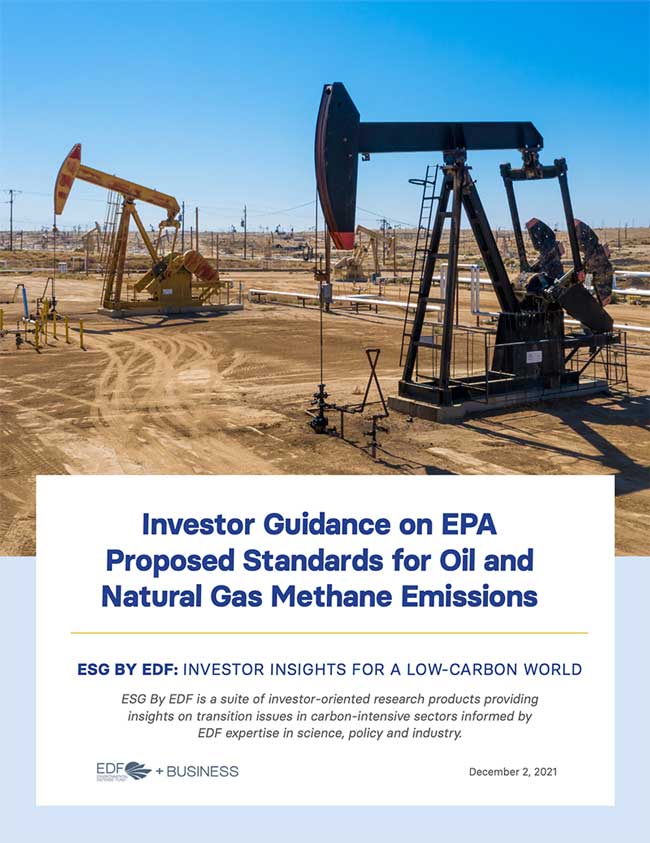Investor Guide to Proposed EPA Methane Regulations
In November 2021, the U.S. EPA proposed new regulations to reduce methane and other harmful air pollution from new and existing sources in the oil and natural gas industry. The regulations would update the emission performance standards for newly built wells and, for the first time, extend regulation to nearly one million older wells by directing states to develop rules based on emission guidelines for existing sources.
EPA is taking public comments on the proposal through January 31st. In this guide, we look at why the proposed rule is important to investors, how it could better meet investor needs, and how investors can submit comments to EPA.
Highlights from the Investor Guide
- New EPA rules would significantly reduce methane emissions from oil and gas facilities. The proposed rules, open for public comment now through January 14th, would tighten emissions requirements for new facilities and set emission limits for older facilities.
- The proposal is supported by a wide range of stakeholders. Diverse oil and gas companies, trade associations, investors, public health organizations, and environmental groups support the rule.
- Addressing methane is the “low-hanging fruit” to improve climate performance for the oil and gas industry. EPA estimates that in 2030, the proposed rule would reduce methane emissions from covered sources by 74 percent compared with 2005 levels. Compliance costs are estimated at $0.10 per barrel annually.
- Investors should comment in support of the proposal. By providing supportive feedback, investors can increase the durability of the rule, reducing risk and increasing regulatory certainty.
- The final rule should go further on three key points. The proposal misses significant emissions-reduction opportunities by addressing leaks from small wells, eliminating routine natural gas flaring, and improving emissions data collection.
